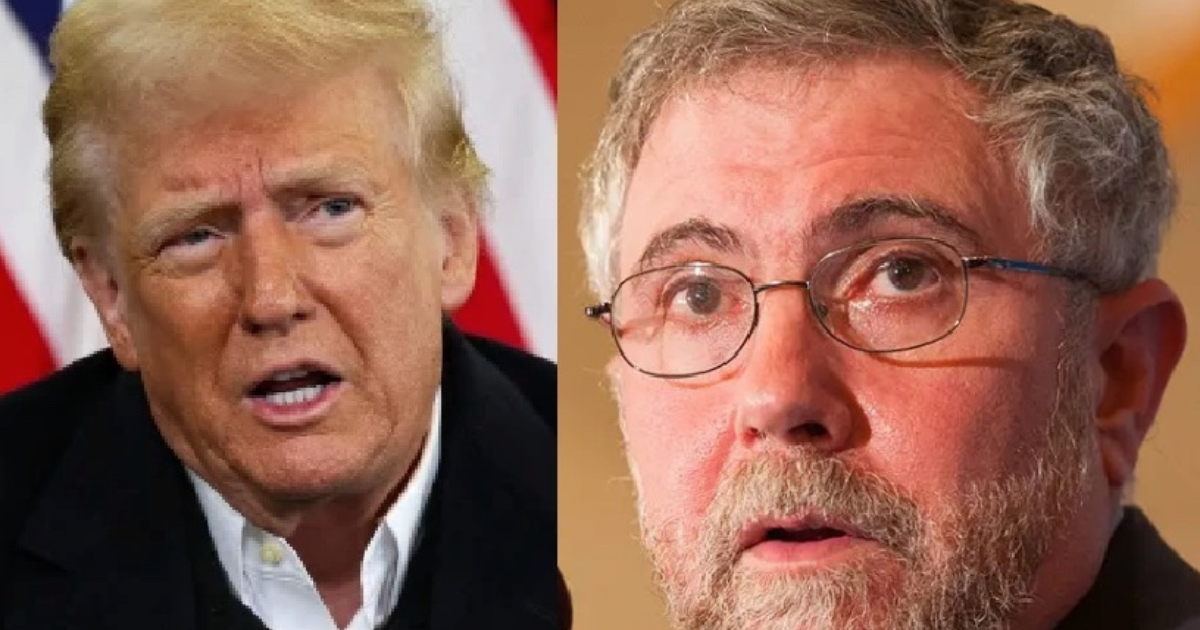Nobel Prize winning economist Paul Krugman is raising alarms about the economic fallout from the Donald Trump administration’s intensified crackdown on undocumented immigrants.
In his latest newsletter, Krugman warned that the plan to expand the reach of Immigration and Customs Enforcement (ICE) and pursue large-scale deportations would effectively “ICE the economy,” creating shockwaves across several critical sectors.
While Krugman admitted that “the economic impact of mass deportations are definitely second-tier” compared with the fear and instability sparked by the enlarged role of ICE, he stressed that the financial consequences deserved serious attention.
“But they’re still important, and a subject I know something about,” he wrote, noting his expertise as a long-standing economic observer and the 2008 recipient of the Nobel Memorial Prize in Economic Sciences.
A central point of Krugman’s argument is that undocumented labor is an integral part of the U.S. workforce. He noted that roughly 5% of all American workers are undocumented, though their presence is not evenly spread out.
View this post on Instagram
Instead, these workers are “strongly concentrated in certain industries and occupations,” he explained. Agriculture, meatpacking, and home-based senior care are among the sectors most dependent on immigrant labor. Removing a large portion of this workforce, he argued, would severely disrupt production chains and availability of essential goods and services.
The economist went further, predicting that such disruptions would have a widespread effect on prices and inflation. “ICEing the economy will make native-born Americans substantially worse off,” Krugman warned.
Food costs, caregiving services, and other everyday essentials could quickly become more expensive, he said, as industries struggle to fill the gap left behind by deported workers. In some cases, he cautioned, certain areas of the labor market could be “essentially crippled.”
View this post on Instagram
Krugman also mentioned that this potential economic damage has to be seen in tandem with other Trump-era trade and immigration policies. He directly compared deportations with the fallout from tariffs, a signature element of Donald Trump’s economic strategy.
“In fact, my guess is that arrests and deportations will eventually do even more economic harm than tariffs,” he wrote, underscoring that the hidden costs of immigration crackdowns might outweigh protectionist trade measures.
The connection between labor shortages and inflation was central to his warning. By destabilizing industries already vulnerable to workforce shortfalls, large-scale deportations would push the economy further into supply-side constraints.
According to most economic experts, including those on the Right and Left, President Donald Trump’s tariffs are wrecking the global economy because he is some combination of stupid and delusional.
“What does Donald Trump actually know?” Nobel Prize-winning economist Paul Krugman… pic.twitter.com/Vw7PBjqs0C
— Michael Shellenberger (@shellenberger) April 9, 2025
While Americans are already struggling with high prices of everyday items, Krugman also highlighted the issue by arguing that the present scenario would leave ordinary Americans paying the price not only in higher costs of food and services but also in reduced access to the caregiving support many families rely on.
Beyond pure economics, Krugman acknowledged obvious the social and psychological toll of intensified immigration enforcement. Communities would naturally be living in fear, with millions of families directly affected.
View this post on Instagram
“The economic impact of mass deportations are definitely second-tier,” he repeated, but insisted that Americans must not underestimate the broader suffering tied to this policy approach.
Ultimately, Krugman’s analysis portrays a society on the verge of self-inflicted economic injury. Deportations on such a scale, he argued, would ripple far beyond immigrant households and directly undermine the prosperity of U.S.-born citizens.









